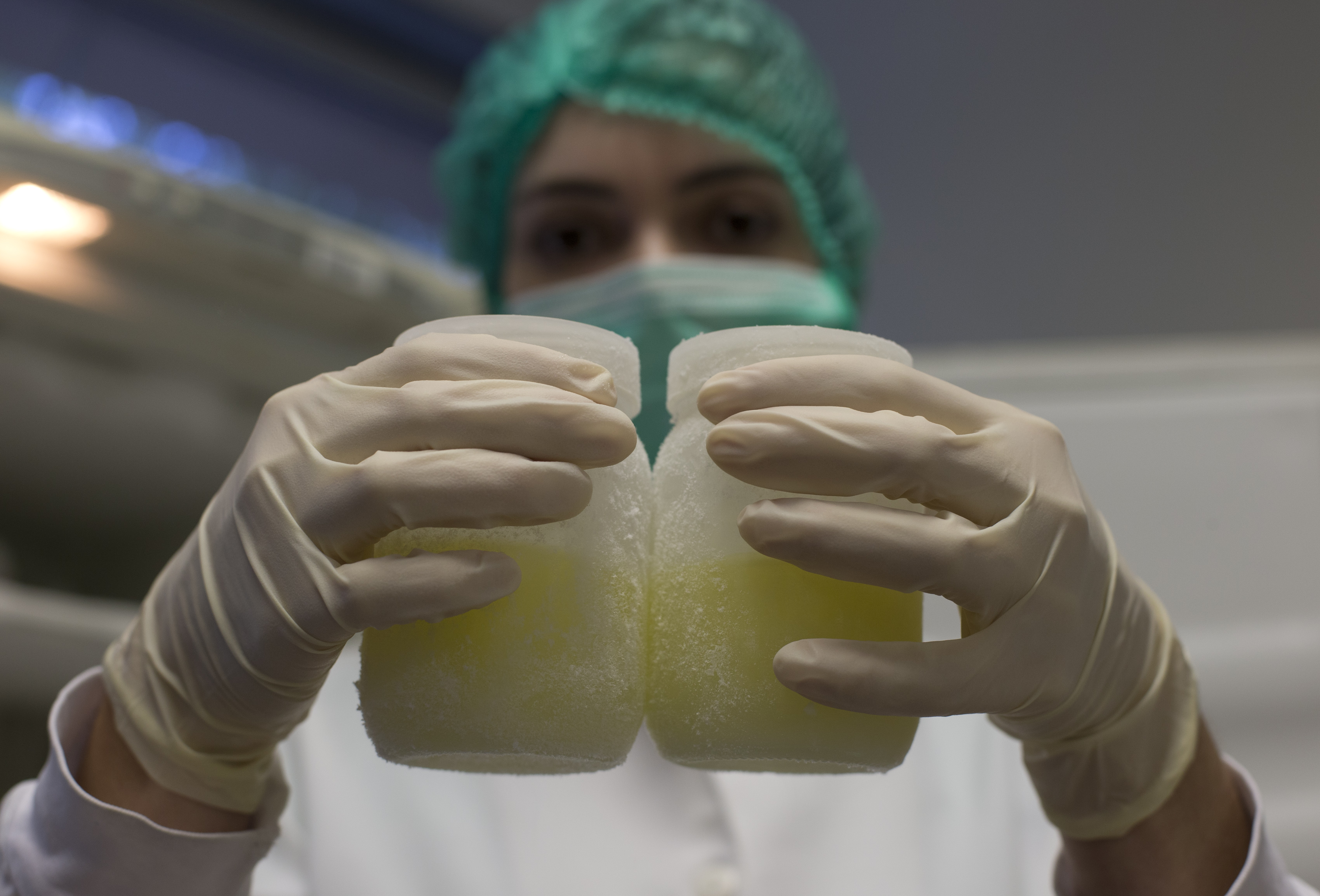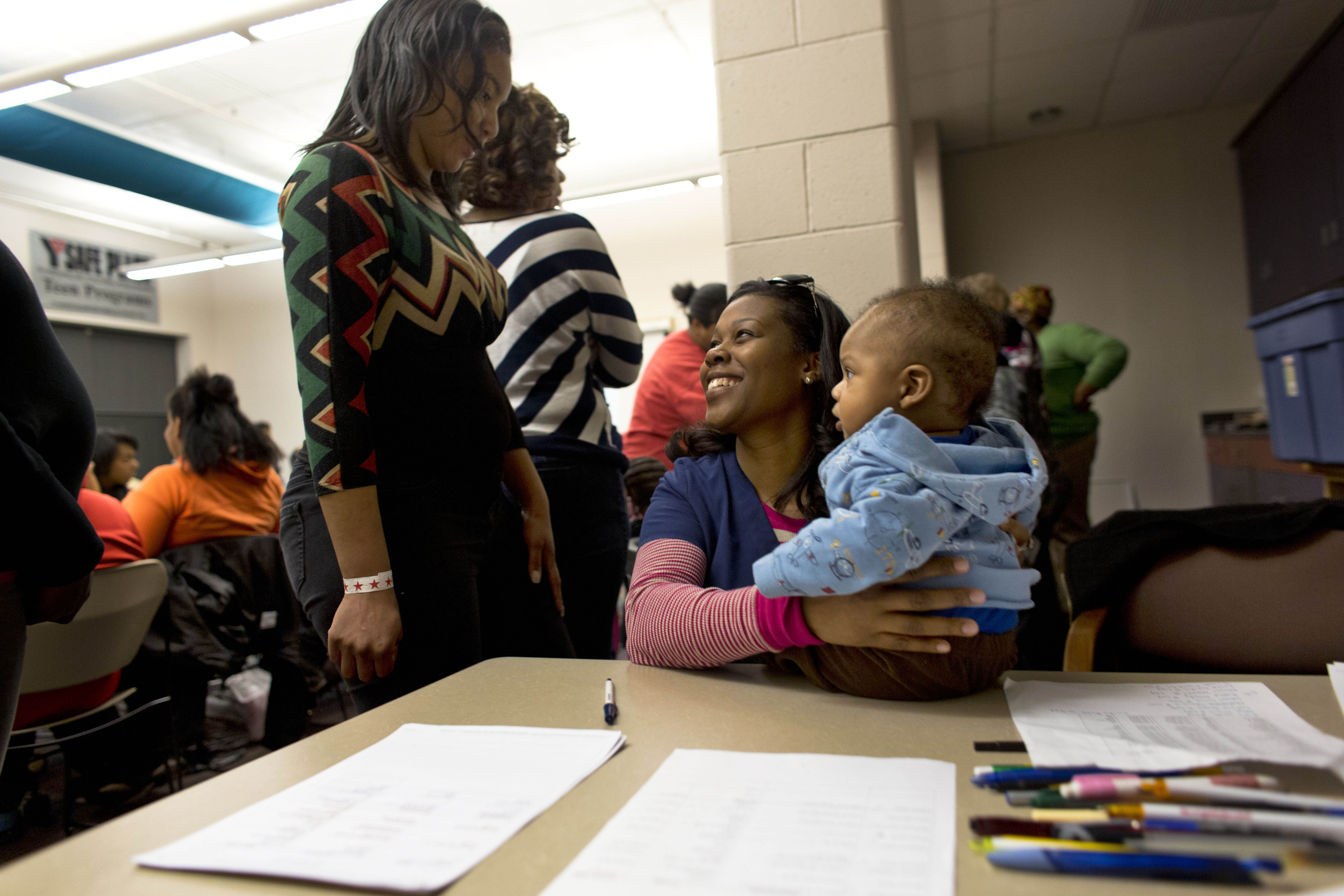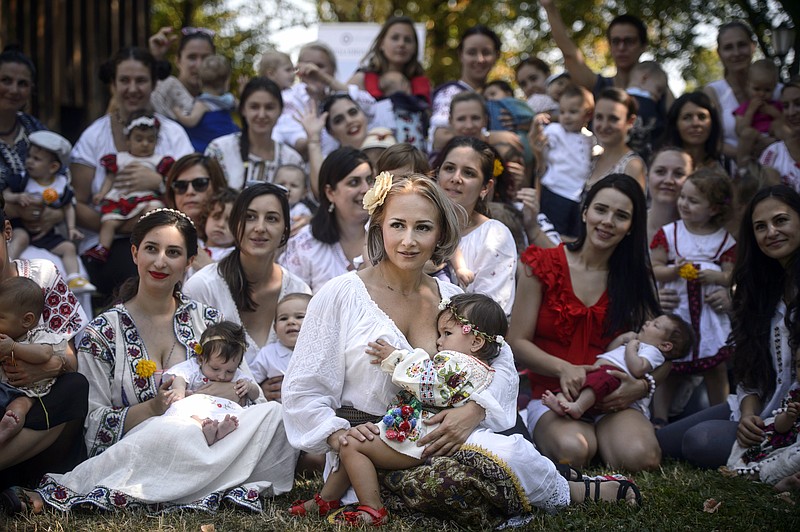 In this Aug. 27, 2014 photo, a lab technician shows a couple of containers of frozen donated human milk at the Fernandes Figueira Institute in Rio de Janeiro, Brazil. A group of American doctors are in Brazil to learn how the country's extensive milk bank system works. With more than 200 such banks nationwide, where breast-feeding women can donate milk that is then pasteurized and used in neo-natal facilities, Brazil has cut down dramatically in infant mortality. Doctors in the U.S. are looking to duplicate Brazil's success. (AP Photo/Silvia Izquierdo)
In this Aug. 27, 2014 photo, a lab technician shows a couple of containers of frozen donated human milk at the Fernandes Figueira Institute in Rio de Janeiro, Brazil. A group of American doctors are in Brazil to learn how the country's extensive milk bank system works. With more than 200 such banks nationwide, where breast-feeding women can donate milk that is then pasteurized and used in neo-natal facilities, Brazil has cut down dramatically in infant mortality. Doctors in the U.S. are looking to duplicate Brazil's success. (AP Photo/Silvia Izquierdo) CHICAGO (AP) - A widely shared story that U.S. health officials are recommending a delay in breast-feeding to improve vaccine effectiveness is false.
The U.S. Centers for Disease Control and Prevention, the agency named in the false reports, encourages breast-feeding . The CDC says breast milk is best for all infants except in rare cases such as when a mother has active, untreated tuberculosis.
"There is no recommendation from the CDC or the (American Academy of Pediatrics) that mothers delay breast-feeding to enhance vaccine efficacy," said Dr. Joan Younger Meek, a Tallahassee, Florida, physician who chairs a breast-feeding panel for the pediatricians group.
"Breast milk contains multiple immune protective factors, including whole cells which fight infection," Meek said.
All breast-fed infants should receive vaccines according to the regular schedule, and there is no need to interrupt or delay breastfeeding, Meek said. Breast-fed babies sometimes respond better to immunizations than do infants on formula, she said.
 Volunteer Monet Williams, center, holds a friend's baby whose mother is in a breast-feeding class as she talks to another volunteer at a YMCA in Milwaukee. Breast-feeding is thought to help protect against higher rates of infant mortality and childhood obesity, to more breast cancer deaths and heart disease in adults - and it's much less common among U.S. black women than in whites and others. Rates have improved in recent years but the disparity remains. (AP Photo/Darren Hauck)
Volunteer Monet Williams, center, holds a friend's baby whose mother is in a breast-feeding class as she talks to another volunteer at a YMCA in Milwaukee. Breast-feeding is thought to help protect against higher rates of infant mortality and childhood obesity, to more breast cancer deaths and heart disease in adults - and it's much less common among U.S. black women than in whites and others. Rates have improved in recent years but the disparity remains. (AP Photo/Darren Hauck) Versions of the false story posted by healthywildandfree.com and foodrenegade.com link to a 2010 study published in the Pediatric Infectious Disease Journal. Researchers were looking into why a vaccine against rotavirus wasn't working as well in developing countries as in industrialized countries. Rotaviruses cause half a million deaths each year in children worldwide, so improving a vaccine's effectiveness would save lives.
The small study, published in 2010, looked at how the vaccine interacted with breast milk samples in a test tube or culture dish. Based on results on tests of breast milk from women in India and other countries, researchers suggested it was possible that the milk could make the vaccine less effective.
But the study wasn't the final word. Later studies showed no reason to restrict breast-feeding in the hours before and after rotavirus vaccination.
The World Health Organization has said that breastfeeding doesn't significantly impair the response to the rotavirus vaccines.
